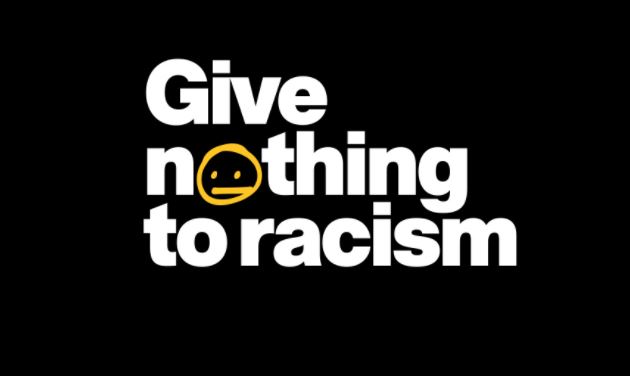
<div class="page-header">
<h2><span class="TrackChangeTextInsertion TrackedChange SCXW141335816 BCX0"><span class="TextRun SCXW141335816 BCX0"><span class="NormalTextRun SCXW141335816 BCX0">The Teaching C</span></span></span><span class="TrackChangeTextInsertion TrackedChange SCXW141335816 BCX0"><span class="TextRun SCXW141335816 BCX0"><span class="NormalTextRun SCXW141335816 BCX0">ouncil has partnered with the Human Rights Commission to develop an education response to racism under the same banner as the </span></span></span><span class="TrackChangeTextInsertion TrackedChange SCXW141335816 BCX0"><span class="TextRun SCXW141335816 BCX0"><span class="NormalTextRun SCXW141335816 BCX0">Give Nothing to Racism</span></span></span><span class="TrackChangeTextInsertion TrackedChange SCXW141335816 BCX0"><span class="TextRun SCXW141335816 BCX0"><span class="NormalTextRun SCXW141335816 BCX0"> campaign, named Unteach Racism.</span></span></span></h2>
<p class="lead">The Council says, &#8220;There is growing acknowledgement of racial bias in our education system, especially in relation to Māori learner success. As the professional body for teachers, the Teaching Council is well positioned to begin a conversation around racism with teachers across Aotearoa New Zealand.&#8221;</p>
<p>Its vision is, &#8216;to empower the profession to have safe and productive conversations about racism, that result in greater understanding and changes in behaviour and practice.&#8217;</p>
</div>
<section id="e327" class="block
 dnadesign__elemental__models__elementcontent
 
 block--content
 
 
 
 
 
 "></p>
<div class="content-element__content">
<h2 class="content-element__title">Unteach Racism</h2>
<p><span class="TrackChangeTextInsertion TrackedChange SCXW248702295 BCX0"><span class="TextRun SCXW248702295 BCX0"><span class="NormalTextRun SpellingErrorV2 SCXW248702295 BCX0">&#8220;Unteach Racism recognises</span></span></span><span class="TrackChangeTextInsertion TrackedChange SCXW248702295 BCX0"><span class="TextRun SCXW248702295 BCX0"><span class="NormalTextRun SCXW248702295 BCX0"> that racism is something that is learned and therefore can be unlearned.&#8217; It acknowledges the unique position </span></span></span><span class="TrackChangeTextInsertion TrackedChange SCXW248702295 BCX0"><span class="TextRun SCXW248702295 BCX0"><span class="NormalTextRun ContextualSpellingAndGrammarErrorV2 GrammarErrorHighlight SCXW248702295 BCX0">of </span></span></span><span class="TrackChangeTextInsertion TrackedChange SCXW248702295 BCX0"><span class="TextRun SCXW248702295 BCX0"><span class="NormalTextRun ContextualSpellingAndGrammarErrorV2 GrammarErrorHighlight SCXW248702295 BCX0">expertise</span><span class="NormalTextRun SCXW248702295 BCX0"> teachers have in being able to address this challenge and inspire others to do the same. </span></span></span><span class="TrackChangeTextInsertion TrackedChange SCXW248702295 BCX0"><span class="TextRun SCXW248702295 BCX0"><span class="NormalTextRun SCXW248702295 BCX0">Unteach Racism</span></span></span><span class="TrackChangeTextInsertion TrackedChange SCXW248702295 BCX0"><span class="TextRun SCXW248702295 BCX0"><span class="NormalTextRun SCXW248702295 BCX0"> will empower teachers to lift the limits that society has placed on children and young people.</span></span></span><span class="EOP TrackedChange SCXW248702295 BCX0">&#8220;</span></p>
<p>The Teaching Council outlines the aims of Unteach Racism will be to:</p>
<ul>
<li>recognise that racism is a societal issue, not solely an education issue </li>
<li>acknowledge that racism affects many groups of people, and has significant relevance and impact on Māori, as tangata whenua⯠</li>
<li>be informed by best practice – be strengths- based, future- focused and optimistic⯠</li>
<li>be aligned to the expected behaviours and practices set out in <em>Our Code, Our Standards| Ngā Tikanga Matatika, Ngā Paerewaâ¯</em> </li>
<li>provide teachers with meaningful ways to demonstrate the values of the teaching profession </li>
<li>approach uncomfortable conversations around racism through the lens of a growth mindset, creating ways for teachers to acknowledge and begin to address racism within their setting </li>
<li>increase the visibility of, and inherent importance of, cultural competency as a vital part of the teacher skill set in Aotearoa </li>
<li>align with the vision of the Leadership Strategy for the Teaching Profession for building principled and inspirational leadership; a culturally capable, competent and connected teaching profession to achieve educational equity and excellence for all children and young people </li>
</ul>
<p>On its website, The Teaching Council states, &#8220;The project reflects a commitment to Te Tiriti o Waitangi. This requires the injustices caused by colonisation to be addressed and all New Zealanders to engage in creating a positive future that honour Te Tiriti.</p>
<p>&#8220;While many of our diverse learners experience racism, the outcomes for tamariki and rangatahi along with out commitment to Te Tiriti means Unteach Racism has significant relevance in affirming Māori learners as tangata whenua.</p>
<p>&#8220;The Council also recognises that we can contribute to tackling this complex problem but we will not be solving it. Racism and its effects are far bigger than this one initiative. We are not the experts but have engaged with experts to ensure that the project is informed by best practice.&#8221;</p>
<p>The Council has been working alongside the following organisations:</p>
<ul>
<li>
<ul>
<li>Human Rights Commission </li>
<li>Teachers and professional leaders </li>
<li>Office of the Children’s Commissioner </li>
</ul>
<ul>
<li>Department of Prime Minister and Cabinet – Child Youth Wellbeing Strategy </li>
<li>Ministry of Education </li>
<li>Ministry of Education Te Hurihanganui </li>
</ul>
<ul>
<li>Ministry of Justice </li>
<li>Te Papa – The Museum of New Zealand </li>
</ul>
</li>
</ul>
<p>A range of reseources, including a dedicated website, will be shared by the Teaching Council.</p>
</div>
</section>

EXCLUSIVE: Teachers used to be paid two to three times more than minimum wage workers,…
After an “overwhelming” vote to reject the latest Government offer, secondary school teachers will begin…
Second-language learning should be compulsory, says a new report from a forum bringing together academics,…
A new entitlement aimed to improve access to learning support coordinators for schools with students…
Educators have raised questions about the Ministry of Education’s new secondary school subjects, set to…
Professional learning and development (PLD) for teachers needs to be higher impact for teachers and…
This website uses cookies.